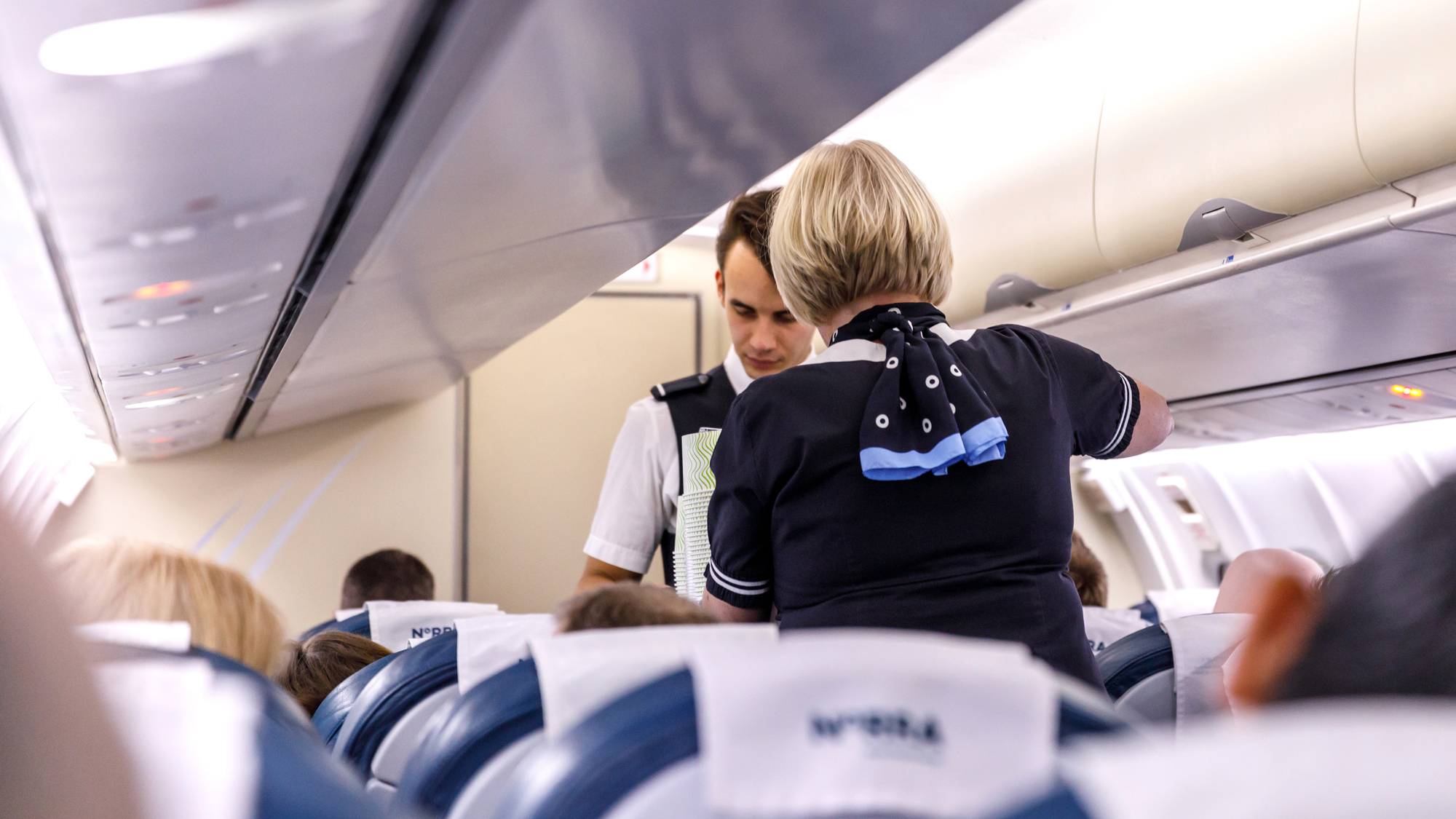

One of the few consolations of long-haul international flights is the free alcohol, right? Nope—not according to a study conducted by a group of researchers at the German Aerospace Center’s Institute of Aerospace Medicine.
The study investigated the effects that combining alcohol consumption and the hypobaric conditions of a typical airplane cabin have on sleep. Researchers took a group of healthy volunteers aged between 18 and 40, and placed half in a chamber where the atmospheric pressure simulated the environment of a plane’s cruising altitude. The remaining volunteers were placed in a sleep laboratory at sea level.
Each group spent two nights in their respective environments, and were provided with alcohol to drink on one of these nights. They slept for four hours, during which they were monitored by polysomnographic equipment that allowed researchers to monitor the subjects’ blood oxygen level (SpO2), along with their heart rate, the time they spent in deep sleep, and various other factors.
The study notes that it’s already well established that both altitude and alcohol consumption can take a toll on the heart—these conditions increase heart rate during sleep and decrease SpO2. They also reduce the amount of time spent in REM sleep. The authors thus “hypothesized that the combination of alcohol and hypobaric conditions would exacerbate the changes in sleep observed under single exposure conditions.” In the study, both altitude and alcohol consumption alone affected median SpO2 levels, heart rates, and time spent in deep sleep, and the combination of both seemed to augment these effects.
SpO2 is recorded as a percentage: a level of 95% to 100% is considered healthy, while 90% represents the clinical threshold for hypoxia, a dangerous condition where your blood is not providing the rest of the body with sufficient oxygen. The group who slept at sea level without drinking recorded a median SpO2 level of 95.88%, while those who also spent the night at sea level but did drink alcohol experienced a small decrease in median SpO2, to 94.59%. The median level of those who slept at simulated altitude without drinking alcohol recorded a median level of 88.97%, and the median level of those who both drank alcohol and slept at altitude was 85.32%.
The SpO2 levels of those who slept at sea level—with or without drinking—never dipped below the threshold for hypoxia, but the levels of the group who slept at altitude without drinking fell below the limit for an average 173.28 minutes of the four hours they slept, and the level of the group who slept at altitude and consumed alcohol fell below it for 201.18 minutes, meaning that their SpO2 level was dangerously low for almost the entire time they slept.
Analysis of participants’ heart rates revealed similar effects. The median heart rate of the group who slept at sea level without drinking was 63.74 beats per minute, at the low end of a ; the median heart rate of the group who slept at sea level and did drink was 76.97 bpm; for the group who slept at altitude without drinking, the median heart rate was 72.9 bpm; and the median heart rate of the group who both drank and slept at altitude was 87.73 bpm. This meant that the combination of drinking alcohol and sleeping at altitude resulted in an average 37.63% increase in heart rate—something usually associated with reasonably vigorous exercise.
Participants’ deep sleep—defined by researchers as the time spent in the N2, N3 and REM stages of sleep, which are important for replenishing both brain and body—was also affected by both factors. The group who slept at altitude and drank alcohol spent only 46.5 minutes in deep sleep, while the non-drinking group who slept at altitude spent 67.5 minutes in deep sleep and the group who drank at sea level spent 84 minutes sleeping deeply—so, in other words, the group sleeping at altitude after drinking got barely half as much deep sleep as their counterparts at sea level. As well as reducing the total amount of deep sleep, the combination of alcohol and altitude also altered the balance of participants’ sleep, changing the proportions of time spent in different sleep stages: “The combined impact of alcohol and hypobaric conditions led to an altered sleep architecture with shorter REM and N3 duration [the two deepest stages of sleep], prolonged N2 duration and increased WASO.”
The study’s results suggest that simply being in the hypobaric conditions of a plane cabin while you’re asleep can place a significant strain on both your heart and the quality of your rest—and that if you’re already stuck trying to sleep sitting up in economy, availing yourself of airline-provided alcohol is probably not the best approach to expediting your excursion into dreamland.